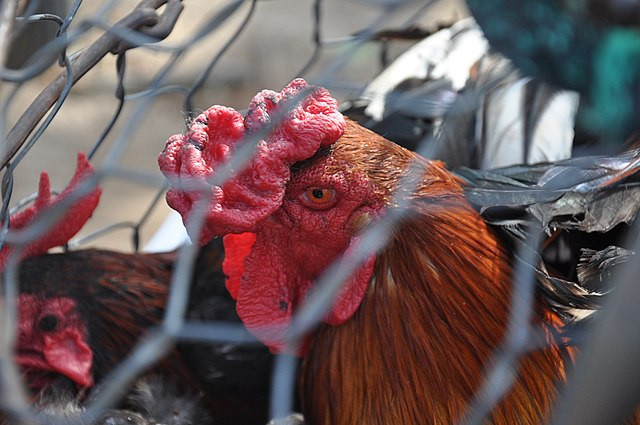A Mississippi poultry farm has reported the United States' first outbreak of the highly pathogenic H7N9 bird flu strain since 2017, prompting federal health authorities to cull more than 47,000 birds and initiate an investigation amid rising concerns over the spread of avian influenza.
The outbreak was confirmed last week at a commercial broiler breeder chicken flock in Noxubee County, according to an alert issued by the World Organization for Animal Health. The Mississippi Board of Animal Health (MBAH) verified the presence of H7N9 after significant numbers of chickens began dying at the facility on March 8, a typical indicator of highly pathogenic avian influenza.
"This H7N9 virus is a fully North American virus of wild bird-origin and is unrelated to the Eurasian H5N1 clade 2.3.4.4b virus currently circulating in the United States," the MBAH said in a statement. The entire flock of 47,654 birds has since been culled, and officials confirmed that no infected poultry entered the food supply.
The outbreak is the first confirmed case of highly pathogenic H7N9 in US commercial poultry since two farms in Tennessee were affected in 2017. At the time, additional cases were reported across Alabama, Georgia, and Kentucky, though the virus was contained.
The USDA's Animal and Plant Health Inspection Service has launched an investigation into the Mississippi case and is ramping up surveillance efforts to monitor potential spread.
H7N9 is considered a serious public health concern, though experts emphasize that the risk of transmission to the general public remains low. The World Health Organization (WHO) notes that the strain does not appear to spread easily between humans. Most human infections have resulted from exposure to live poultry or contaminated environments.
According to WHO data, there have been 1,658 confirmed human cases of H7N9 worldwide since 2013, primarily in China, resulting in 616 deaths. While researchers in Thailand have previously indicated that the mortality rate for H7N9 is lower than that of H5N1, they cautioned that the virus may spread faster, heightening the risk should it mutate.
The Mississippi case comes as the US continues to grapple with a separate H5N1 bird flu outbreak, which has devastated poultry farms nationwide and driven up egg prices. Since 2022, the H5N1 outbreak has affected an estimated 167 million birds and infected 70 humans, resulting in one fatality.
The Trump administration has introduced a five-point strategy to address the ongoing H5N1 crisis, including enhanced biosecurity measures, egg imports to stabilize prices, and funding support for affected farmers. The emergence of H7N9 adds a new layer of complexity to the nation's avian influenza response.
Health authorities in Mississippi are maintaining heightened surveillance and increasing biosecurity protocols, though no further cases of H7N9 have been reported beyond the Noxubee County farm.
The Mississippi Board of Animal Health reassured the public that food safety has not been compromised, and ongoing testing of surrounding poultry operations is underway.






